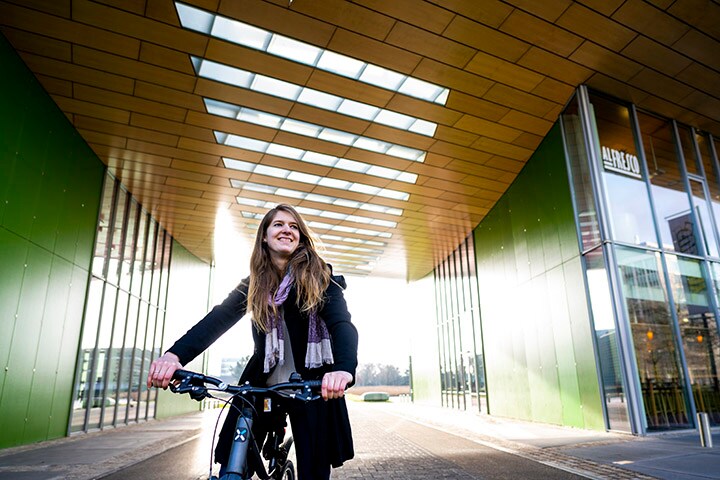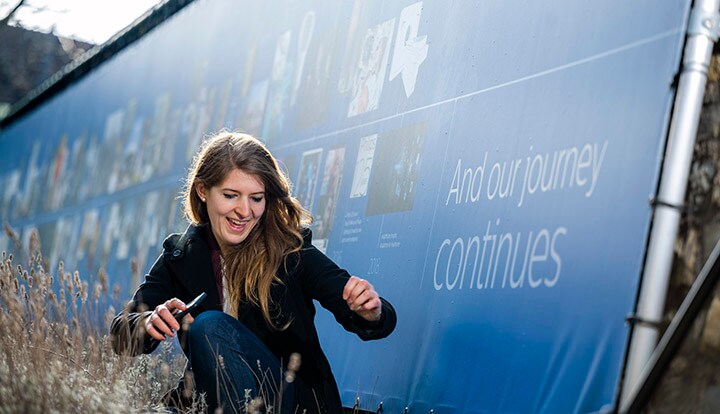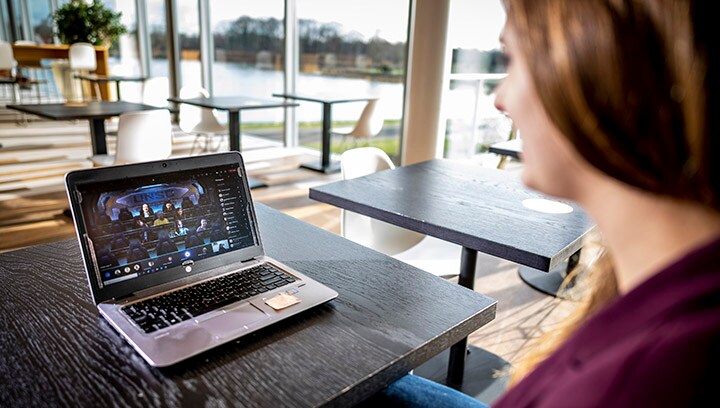Interview
Share on social media
“Coding can save lives”
Stepping out of your comfort zone is never easy. Especially not if you are in a professional position that you have deliberately worked towards for many years.
Lena Jaschke did it anyway; as a 'true tech woman' she decided to take a step aside, from software development to HR. She became responsible for advancing the software capabilities of 6,000 Philips colleagues across the globe. "It gave me more new insights and learnings than I could have imagined."
When did your interest in tech begin?
"As a kid I always wanted to understand how things work. I remember buying a broken mobile phone when I was 12, just for the sake of trying to fix it."
Did you succeed?
"Actually, I ended up trying to fix several devices. Sometimes I managed, but there were always instances when I just could not find the solution. Even experienced people would then tell me; if the motherboard is broken, you can't fix it, better buy a new one.
That experience made me realize that I am better wired to become a software engineer. When you write code and make a mistake, the compiler often will tell you and you can debug and correct for it. Feedback loops in software development are very short. That fits my character - I am an actionable person, not always the most patient one."
When you write code and make a mistake, the compiler often will tell you and you can debug and correct for it. Feedback loops in software development are very short.
Lena Jaschke
Competency Consultant
Software development is a broad discipline. What is your main focus?
"During my studies of Electrical Engineering and Information Technology in Kiel, Germany, I learned that I have a special interest in digital signal processing. One of the projects I worked on within Philips was about developing features for a smart baby bottle. This required taking input signals about the position of a baby bottle and turning that into valuable information for parents so that they know, for example, that the baby is drinking well.”

“But I have certainly been in touch with other areas of software development as well; during an internship at a software company in Hamburg, I was asked to design an interactive computer game. Later, I went to India to work on a robot for education purposes. In this internship, I could apply my knowledge of computer vision to develop a face recognition algorithm so that the robot could walk and interact with kids.”
Why did you choose to do an internship in India?
“Bangalore is the software hub of the world; Philips has an innovation hub there as well. So much of our software nowadays comes from that city. I figured that if I wanted to pursue a career in software, getting to know the working environment and Indian culture better will provide me with extremely valuable insights.”
It sounds like your career choices have been very conscious.
“Not always, though. After I finished my bachelor program, for example, I was actually quite uncertain about the direction I wanted to follow. I knew I enjoyed software development; I really liked working on that computer game, for example. But it did make me realize that I care a lot about the purpose of my work; developing the game is fun, but the reason why just didn't feel right for me.”

“During an internship at Philips as a factory engineer, I first got in touch with medical technology. The turning moment came when I had quite a bad accident and was in the hospital. I realized that in medical technology I would be able to put my skills in software development into practice and actually make a difference in the world. Coding can be so much more than computer games; it can save lives.”
“That is why I applied for a management traineeship in engineering at Philips. It allowed me to do three completely different assignments in three years’ time, to experience and learn different things. Here I found out that it is not just technology that fascinates me, but people development as well. Especially in software, it is important to continue learning throughout your career. In this program, we encourage people to develop continuously, to never stop learning.”
Here I found out that it is not just technology that fascinates me, but people development as well. Especially in software, it is important to continue learning throughout your career. In this program, we encourage people to develop continuously, to never stop learning.
Lena Jaschke
Competency Consultant
What role did you have in HR?
"First, as an HR Projects Manager, I was leading a global program for software capability building. My current role is Competency Consultant in the Software Center of Excellence, which means facilitating the development of software capabilities for more than 6,000 colleagues across the world. I see this as a transformational role; to make it a part of people's habits to continuously develop themselves and establish a growth mindset and learning culture throughout Philips."

Is your team global as well?
"Definitely, we are around 15 people from the UK, US, Netherlands, Spain, Germany, Israel and India."
What would you say your most important learnings have been so far?
"I would always encourage fellow developers to challenge the status quo and realize what impact we can make with software. You may change the world with the code you write. So be vocal about it and let the world know."
